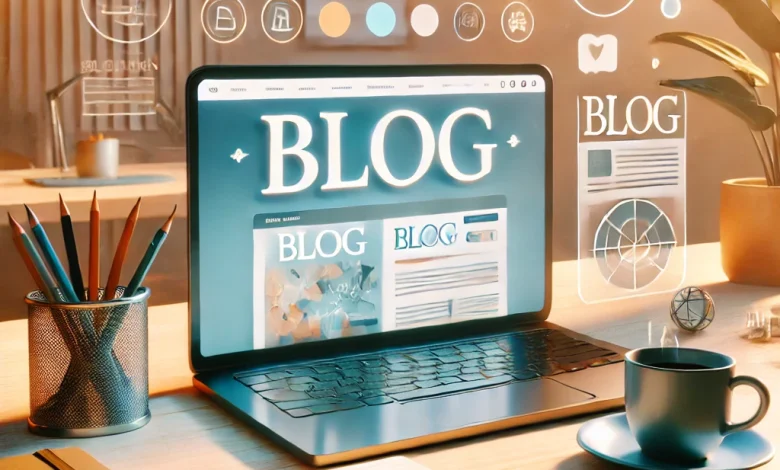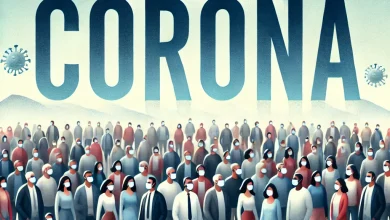20 Essential Insights Into the Future of Liberalism: How MyLiberla.com blog Shapes Progressive Thought

Table of Contents
Liberalism, in its many forms, has shaped political landscapes, empowered individuals, and driven social change for centuries. As the world evolves, so too does the role of liberalism in addressing pressing global issues. At the heart of these discussions is the MyLiberla.com blog, which provides a platform for understanding and engaging with the complexities of liberal thought today.
In this article, we will explore the core principles of liberalism, examine its current state, and discuss the key challenges and opportunities it faces in the modern world. Furthermore, we’ll take a look at how the MyLiberla.com blog contributes to these ongoing conversations and advocates for progressive values in a rapidly changing political landscape.
1. Introduction: The Importance of Myliberla.com blog Today
In the face of global challenges such as climate change, economic inequality, and the rise of authoritarianism, liberalism continues to be a driving force in shaping policies, social structures, and individual rights. As citizens and thinkers, it is crucial to stay informed about how liberal values evolve and address the contemporary issues we face.
The MyLiberla.com blog serves as a valuable resource for those seeking insights into liberalism’s role in modern society. By discussing current political issues, advocating for social justice, and providing in-depth analysis of liberal policies, the blog connects readers with a progressive vision for the future.
This article will delve deeper into the concept of liberalism, its challenges, opportunities, and the role the MyLiberla.com blog plays in influencing and informing the liberal movement.
2. What is Myliberla.com blog?
Before exploring the future of liberalism, it’s important to understand what liberalism itself entails. At its core, liberalism is a political philosophy that emphasizes individual rights, democratic governance, equality, and the protection of freedoms. Liberalism has historically supported the protection of human rights, free markets, and a system of government based on consent of the governed.
Liberalism is not a monolithic ideology; rather, it encompasses various schools of thought, each with a unique approach to solving societal problems. The three main branches of liberalism include:
- Classical Liberalism: Focuses on individual freedom, limited government intervention, and free markets. It emphasizes the importance of private property, personal liberty, and the rule of law.
- Social Liberalism: Expands on classical liberal ideas by advocating for social welfare programs, universal healthcare, and economic policies aimed at reducing inequality. Social liberals argue that government intervention is necessary to address disparities in society and protect vulnerable populations.
- Progressive Liberalism: A more recent development, progressive liberalism seeks to push the boundaries of social and economic reform. It emphasizes the need for urgent action on climate change, systemic social justice, racial and gender equality, and worker rights.
The MyLiberla.com blog reflects the diverse spectrum of liberal thought, offering a platform for discussion, debate, and the development of innovative policies that align with liberal values.
3. The State of Myliberla.com blog in the 21st Century
In the 21st century, liberalism faces both new opportunities and significant challenges. The world is experiencing rapid political, social, and technological transformations, all of which impact liberal ideologies. The MyLiberla.com blog has become an important forum for analyzing these shifts and offering perspectives on how liberalism can adapt to modern realities.
A. Rise of Populism and Nationalism
One of the most significant challenges facing liberalism today is the rise of populist and nationalist movements. In countries around the world, populist leaders have gained power by appealing to voters frustrated with traditional politics and institutions. These movements often reject the liberal values of international cooperation, human rights, and social equality.
Populist and nationalist rhetoric has created a divide between those who support liberal democracy and those who believe that more authoritarian forms of governance are the solution. The MyLiberla.com blog regularly discusses how liberal democracies can counter these movements, emphasizing the need for stronger institutions, more inclusive policies, and an active engagement with marginalized communities.
B. Globalization and Economic Inequality
Globalization has brought about significant economic growth, but it has also exacerbated inequality. While some individuals and nations have benefited from global trade and technological advancements, many have been left behind. This growing economic disparity has raised questions about the effectiveness of liberal economic policies.
The MyLiberla.com blog highlights the need for reforms that address economic inequality while maintaining the principles of free markets. Policies like universal basic income, progressive taxation, and social safety nets are often discussed as ways to balance the benefits of globalization with the need for a more equitable society.
C. Climate Change and Environmental Justice
Climate change presents a global challenge that liberalism must confront head-on. As the effects of climate change become increasingly apparent, liberal thinkers are advocating for bold environmental policies that address both the causes and consequences of global warming.
The MyLiberla.com blog frequently covers issues related to environmental justice, green new deals, and international climate agreements. Progressives argue that a strong liberal approach to climate policy can not only address environmental concerns but also promote economic development and social equity, particularly for communities most affected by climate change.
4. Key Challenges Facing Liberalism Today
As liberalism moves forward, it faces several key challenges that must be addressed to ensure its relevance and effectiveness in the modern world. These challenges include economic inequality, the erosion of democratic norms, the struggle to combat climate change, and the influence of digital technology and misinformation.
A. Economic Inequality
Economic inequality has grown at an alarming rate, both within and between countries. While liberalism has traditionally advocated for market economies and the protection of individual property rights, critics argue that unchecked capitalism has led to vast disparities in wealth and opportunity.
Liberalism must evolve to address these concerns by promoting policies that ensure economic opportunity for all. This may include wealth redistribution through progressive taxation, investments in education and healthcare, and policies that prioritize the well-being of the most vulnerable in society.
The MyLiberla.com blog often highlights proposals for a fairer economic system, such as universal basic income (UBI), better labor protections, and a stronger social safety net. These discussions are essential in rethinking how liberalism can address the growing gap between the rich and the poor.
B. Erosion of Democratic Norms
Another challenge is the erosion of democratic norms in liberal democracies. Authoritarian leaders and political movements are undermining democratic institutions, weakening the rule of law, and stoking division among citizens. These trends threaten the very foundation of liberalism, which relies on free and fair elections, separation of powers, and respect for individual rights.
The MyLiberla.com blog provides in-depth analysis on how liberal democracies can protect and strengthen their institutions in the face of these threats. It also explores the importance of media literacy, civil society, and grassroots activism in preserving democratic values.
C. Climate Change and Environmental Degradation
Climate change presents perhaps the greatest existential threat to humanity, and it is a crisis that requires urgent action. Liberalism, with its focus on human rights and social justice, is uniquely positioned to advocate for policies that address climate change while ensuring fairness for marginalized communities.
The MyLiberla.com blog emphasizes the importance of green policies such as renewable energy investment, carbon taxation, and sustainable development. It also highlights how liberal policies can create a green economy that provides jobs and opportunities while addressing the climate crisis.
D. The Impact of Digital Technology and Misinformation
The digital age has revolutionized communication and access to information, but it has also facilitated the spread of misinformation, hate speech, and divisive content. Social media platforms and news outlets have become breeding grounds for false narratives and extremist ideologies, which threaten the integrity of democratic systems.
The MyLiberla.com blog explores how liberals can combat misinformation through better media literacy, regulation of digital platforms, and promoting fact-based journalism. It also discusses the ethical considerations of privacy and free speech in the digital age.
5. Opportunities for Reimagining Liberalism
Despite these challenges, liberalism offers a path forward by reimagining and adapting its policies to meet the needs of the 21st century. Key opportunities for reimagining liberalism include:
A. A Progressive Economic Agenda
To address economic inequality, liberals must embrace a progressive economic agenda that includes universal healthcare, affordable housing, a living wage, and environmental sustainability. By prioritizing these issues, liberals can create a more just and equitable society.
B. Strengthening Democracy
Liberalism must focus on strengthening democratic norms and institutions by ensuring voting rights, electoral reforms, and fighting against voter suppression. By promoting political engagement and empowering marginalized communities, liberalism can reinvigorate democracy.
C. Social Justice and Inclusion
Liberalism must continue to push for social justice in all its forms, including racial equality, gender rights, LGBTQ+ protections, and economic inclusion. By fostering a society that embraces diversity and inclusion, liberalism can create a more harmonious world for all.
6. Real-World Examples of Liberal Successes
Across the globe, there are numerous examples where liberal policies have had a significant positive impact. For instance, Scandinavian countries have long been champions of social liberalism, providing universal healthcare, free education, and strong social safety nets.
In the United States, progressive states like California and New York have implemented liberal policies aimed at addressing climate change, expanding healthcare access, and promoting social justice. These successes demonstrate that liberalism, when applied effectively, can improve the lives of citizens and create a more inclusive and equitable society.
7. The Future of Liberalism: A Call to Action
Looking ahead, the future of liberalism depends on its ability to adapt and confront the challenges of the modern world. The MyLiberla.com blog serves as a vital resource for those who want to engage with liberal ideas and contribute to the movement for a fairer, more just society.
Individuals can support liberal causes by getting involved in political activism, advocating for progressive policies, voting, and staying informed through trusted sources like the MyLiberla.com blog.
8. Conclusion
In conclusion, liberalism has a vital role to play in shaping the future of the world. By addressing key challenges such as economic inequality, democratic erosion, climate change, and misinformation, liberalism can continue to serve as a force for good. Platforms like the MyLiberla.com blog play an essential role in fostering dialogue, promoting progressive values, and providing readers with the tools they need to make a positive impact on society.
As we look toward the future, it is clear that liberalism’s potential to create a just, equal, and sustainable world remains strong. It is up to us, as individuals and citizens, to ensure that this vision becomes a reality.
FAQs
1. What is liberalism?
- Answer: Liberalism is a political philosophy that emphasizes individual freedoms, democracy, equality, and the protection of human rights. It advocates for a system of government based on the consent of the governed, free markets, and a commitment to social justice.
2. How does the MyLiberal.com blog contribute to the liberal movement?
- Answer: The myliberla.com blog serves as an informative platform for discussing liberal values, current political issues, and social justice topics. It provides insights, analysis, and policy recommendations from a progressive perspective, helping to engage readers in meaningful discussions about the future of liberalism.
3. What are the main challenges facing liberalism today?
- Answer: Liberalism faces several challenges in the modern world, including the rise of populism and nationalism, economic inequality, the erosion of democratic norms, the climate crisis, and the spread of misinformation. These challenges threaten the core principles of liberalism and require thoughtful reform and action.
4. How can liberalism address economic inequality?
- Answer: To address economic inequality, liberalism advocates for progressive economic policies such as universal healthcare, wealth redistribution through progressive taxation, affordable housing, and better labor protections. It emphasizes ensuring equal opportunities and access to essential services for all members of society.
5. What role does the MyLiberal.com blog play in promoting social justice?
- Answer: The myliberla.com blog highlights the importance of social justice, advocating for policies that promote racial equality, gender rights, LGBTQ+ protections, and economic inclusion. The blog offers insights and resources to engage readers in creating a more equitable society for all.
6. How does climate change relate to liberalism?
- Answer: Climate change is a significant issue for liberalism, as it directly impacts vulnerable communities and threatens global well-being. Liberalism advocates for bold environmental policies, such as renewable energy investment, carbon pricing, and international climate agreements. The myliberla.com blog often discusses ways liberal policies can combat climate change and promote environmental justice.
7. What is progressive liberalism and how is it different from classical liberalism?
- Answer: Progressive liberalism builds on classical liberalism by advocating for more expansive social policies aimed at reducing inequality and addressing contemporary challenges like climate change, healthcare, and social justice. Classical liberalism focuses on individual freedoms, limited government, and free markets, while progressive liberalism pushes for government intervention to ensure social welfare and equal opportunities.
8. How can I contribute to the liberal movement?
- Answer: You can contribute to the liberal movement by staying informed, voting in elections, engaging in political activism, supporting progressive causes, and advocating for policies that align with liberal values. Following platforms like the myliberla.com blog can help you stay updated on important issues and take action.
9. What are some real-world examples where liberal policies have been successful?
- Answer: Several countries, such as those in Scandinavia, have successfully implemented liberal policies like universal healthcare, strong social safety nets, and progressive taxation. In the United States, liberal states like California and New York have led efforts in environmental protection, workers’ rights, and social justice reforms.
10. How does misinformation impact liberalism?
- Answer: Misinformation undermines public trust in democratic processes and can distort political discourse. Liberalism, with its emphasis on reasoned debate, freedom of expression, and an informed electorate, is particularly threatened by false narratives and divisive content. The myliberla.com blog discusses the importance of media literacy and combating misinformation to preserve democratic values.
11. Can liberalism evolve to meet the challenges of the 21st century?
- Answer: Yes, liberalism has the potential to evolve and adapt to modern challenges. Progressive economic reforms, strengthening democracy, promoting social justice, and tackling global issues like climate change and technological impacts are key opportunities for liberalism to remain relevant and effective in the 21st century.
12. How can I stay updated on liberal ideas and discussions?
- Answer: Following the myliberla.com blog is a great way to stay updated on liberal ideas, discussions, and progressive policies. The blog regularly publishes articles, opinion pieces, and analyses on current events and how liberalism is responding to them.
13. How can liberalism address the rise of authoritarianism?
- Answer: Liberalism promotes democratic governance, human rights, and the rule of law. To counter authoritarianism, liberals advocate for strengthening democratic institutions, protecting voting rights, and holding leaders accountable. The myliberla.com blog often explores strategies to defend democracy, such as judicial independence, free press, and civil society engagement.
14. What is the relationship between liberalism and human rights?
- Answer: At its core, liberalism is deeply rooted in the protection of human rights. It advocates for civil liberties, political rights, social rights, and the equal treatment of all individuals, regardless of race, gender, or background. The myliberla.com blog frequently discusses the importance of upholding human rights both within countries and internationally.
15. How can liberals address the challenge of misinformation in the digital age?
- Answer: Liberals can address misinformation by promoting media literacy, advocating for responsible journalism, and regulating social media platforms to curb the spread of false information. The myliberla.com blog often highlights these issues and suggests ways to ensure accurate information is accessible to the public.
16. What role does education play in advancing liberal ideals?
- Answer: Education plays a critical role in advancing liberal ideals by fostering critical thinking, inclusivity, and an understanding of democratic values. By promoting universal access to education, liberals can empower individuals to engage meaningfully in society, understand diverse perspectives, and advocate for policies that align with liberal values. The myliberla.com blog often features articles on education reforms that support these goals.
17. How can liberalism support the rights of marginalized groups?
- Answer: Liberalism emphasizes equality and the protection of rights for all individuals. It advocates for policies that promote racial, gender, and LGBTQ+ equality, as well as economic justice. By focusing on anti-discrimination laws, affirmative action, and social welfare programs, liberalism works to uplift marginalized groups. The myliberla.com blog regularly publishes pieces that address the rights of marginalized communities and highlight ways to combat systemic inequality.
18. How can liberals address the global refugee crisis?
- Answer: Liberalism supports policies that protect refugees and migrants by emphasizing human dignity, asylum rights, and the fair treatment of displaced people. Liberals advocate for international cooperation and humanitarian assistance to ensure that refugees receive the support they need. The MyLiberal.com blog often covers global refugee issues and discusses the importance of inclusive policies that reflect liberal values of compassion and justice.
19. How does liberalism approach environmental sustainability?
- Answer: Liberalism recognizes the urgency of environmental sustainability and advocates for policies that address climate change, protect natural resources, and transition to renewable energy. Through green new deals, carbon taxes, and sustainable development goals, liberals strive to create a balance between economic growth and environmental protection. The myliberla.com blog regularly explores environmental justice and liberal responses to climate challenges.
20. How can individuals support the liberal movement on a local level?
- Answer: Individuals can support the liberal movement on a local level by volunteering for campaigns, advocating for progressive policies at the municipal or state level, engaging in grassroots activism, and promoting community-based solutions to social issues. The myliberla.com blog offers insights on how local involvement can make a meaningful impact on broader liberal causes.




